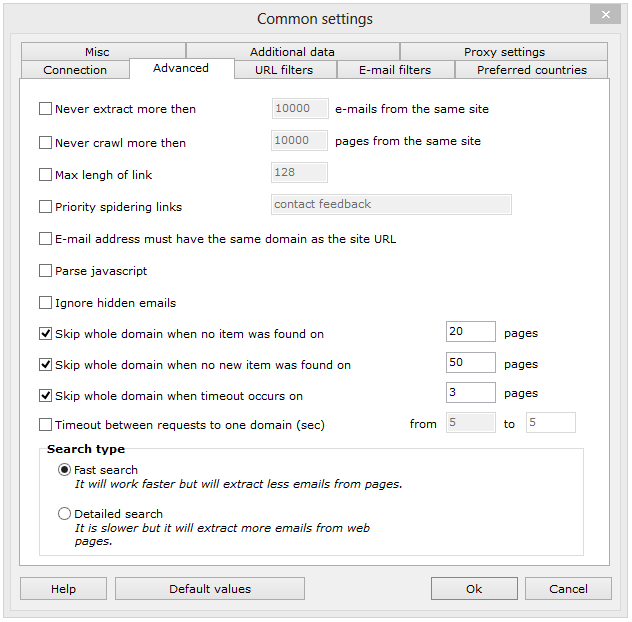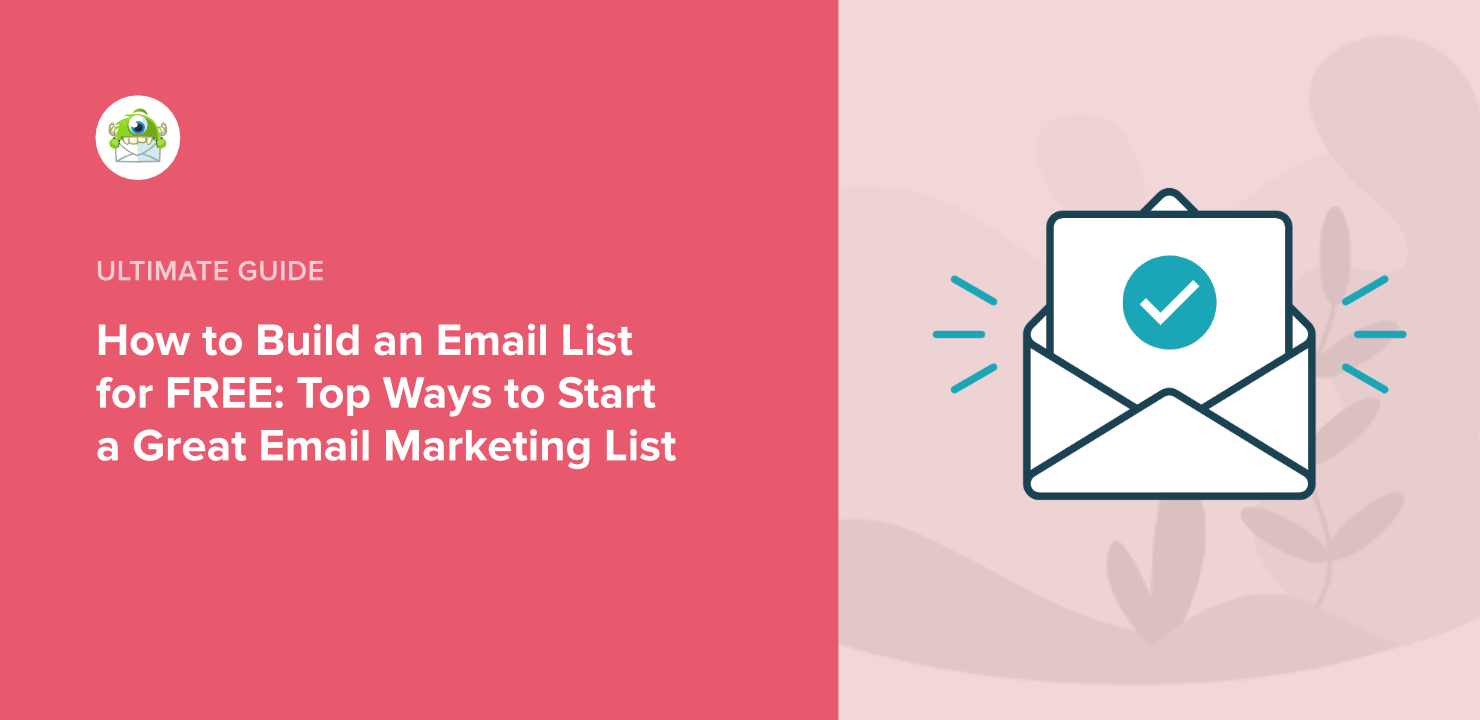No, using free email lists for marketing is not recommended. It can harm your business reputation and violate laws.
Email marketing is a powerful tool for reaching potential customers. But, the source of your email list matters greatly. Free email lists are often obtained without permission and can include outdated or incorrect information. This can lead to high bounce rates and spam complaints.
Moreover, using such lists can violate regulations like GDPR and CAN-SPAM, resulting in hefty fines. Building your own list through opt-ins ensures that your emails reach interested and engaged recipients, leading to better results. In this post, we will explore the risks of free email lists and offer safer, more effective alternatives for your marketing efforts.

Credit: www.atompark.com
Introduction To Free Email Lists
Many businesses think about using free email lists for marketing. They seem like a quick way to reach a large audience. But are they really effective? Let’s explore what free email lists are and where they come from.
What Are Free Email Lists?
Free email lists are collections of email addresses. These lists are often available online at no cost. The idea is to use these emails to market your products or services. But there are many things to consider before using them.
First, you need to know if these emails are from people who want to hear from you. If not, your emails may be ignored. Worse, they could be marked as spam. This can hurt your business reputation.
Common Sources Of Free Email Lists
There are several common sources for free email lists:
- Websites and Forums: Some websites and forums offer free email lists. They may claim these lists are verified and ready to use.
- Social Media Groups: Free email lists can be found in social media groups. Group members might share these lists.
- Email List Providers: Some providers offer free email lists as a way to attract users. They often have paid options too.
Each source has its own risks and benefits. You must weigh these carefully before using free email lists for marketing.

Credit: optinmonster.com
Pros Of Using Free Email Lists
Using free email lists for marketing offers several advantages. These benefits can help small businesses and startups. They can also support larger companies looking to cut costs. Below are some key benefits of using free email lists.
Cost-effective Strategy
One major advantage is the cost-effective strategy. Free email lists eliminate the need for paid subscriptions. This reduces marketing expenses. Saving money on email lists allows you to allocate budget elsewhere. For example, you can invest in better content or design.
Small businesses often have tight budgets. Free email lists help them reach a wider audience without additional costs. This can significantly impact their marketing success.
Ease Of Access
Another benefit is the ease of access. Free email lists are readily available. You can find these lists through various online platforms. Accessing these lists does not require special skills or tools. This makes it easier for anyone to start email marketing.
Most free email lists come in user-friendly formats. They are easy to download and integrate into your email marketing software. This saves you time and effort.
Here is a simple table to show the ease of access:
| Source | Format | Integration |
|---|---|---|
| Online Platforms | CSV, TXT | Easy |
| Forums | CSV, XLS | Moderate |
In summary, free email lists are a valuable tool. They help businesses save money and provide easy access to potential customers.
Cons Of Free Email Lists
Using free email lists might seem tempting. But many downsides make them risky for marketing. Let’s explore some of the main problems.
Poor Quality Leads
Free email lists often contain poor quality leads. These lists may include outdated or fake email addresses. Sending emails to such addresses is a waste of time. You won’t reach real people interested in your product.
High Bounce Rates
Free email lists usually lead to high bounce rates. A high bounce rate means many of your emails are not delivered. This can harm your sender reputation. Email providers might mark your emails as spam. This makes future emails less likely to reach the inbox.

Credit: www.youtube.com
Legal Implications
Using free email lists for marketing can be tempting. But, it’s essential to understand the legal implications. Violating email marketing laws can lead to severe penalties. Knowing the rules helps avoid trouble and ensures your campaigns run smoothly.
Can-spam Act Compliance
The CAN-SPAM Act sets rules for commercial emails in the United States. It requires that you include a clear unsubscribe link. Each email must also have your physical address. Using deceptive subject lines or false information is prohibited. Ignoring these rules can result in hefty fines. Always follow the CAN-SPAM guidelines to stay compliant.
Gdpr Considerations
The GDPR applies to businesses that handle data of EU citizens. It emphasizes user consent and data protection. You must get explicit consent before sending emails. Users should know how their data will be used. You must also allow them to withdraw consent easily. Failure to comply with GDPR can lead to significant penalties. Respecting GDPR guidelines is crucial for legal and ethical marketing.
Impact On Brand Reputation
Using free email lists for marketing can severely impact your brand reputation. Your brand’s image is crucial for success. A poor reputation can drive customers away. Let’s explore how free email lists can harm your brand.
Risk Of Being Marked As Spam
Emails from free lists often end up in spam folders. This happens because these lists are usually not verified. Many recipients will mark your emails as spam. This hurts your sender reputation. Email providers might block your future emails. Getting marked as spam can lower your email open rates. It can also reduce your overall email deliverability.
Loss Of Consumer Trust
Consumers value their privacy. Receiving unsolicited emails can make them wary of your brand. They may see your brand as untrustworthy. Trust is hard to earn and easy to lose. Once lost, it can be very challenging to regain. A damaged reputation can lead to decreased sales. Customers prefer brands that respect their privacy. Free email lists can jeopardize this trust.
Alternative Strategies
Using free email lists for marketing may seem tempting. But, it can pose risks. These risks include low engagement rates and potential legal issues. So, what are the alternative strategies? Below, we discuss two effective methods: building your own list and purchasing verified lists.
Building Your Own List
Creating your own email list is a sustainable strategy. It ensures your audience is genuinely interested. Start by offering valuable content. This could be blogs, eBooks, or webinars. Use a sign-up form on your website. Make it easy for visitors to subscribe. Always provide an opt-in option. This builds trust and keeps your list clean.
Engage with your audience regularly. Send them newsletters and updates. Personalize your emails for better engagement. Use tools like Mailchimp or Constant Contact. These tools help manage your list. They also provide analytics to track performance. Building your own list takes time. But, it pays off in the long run.
Purchasing Verified Lists
Buying verified lists is another option. These lists come from reputable providers. They ensure the emails are valid and active. Always choose a trusted vendor. Verify their data collection methods. This reduces the risk of spam complaints.
Purchased lists can jumpstart your marketing efforts. But, use them wisely. Don’t spam your new contacts. Instead, introduce your brand gently. Offer valuable content and promotions. Respect their privacy and preferences. Regularly update and clean your list. This maintains its quality and effectiveness.
Best Practices For Email Marketing
Using free email lists for marketing can be tempting. But to ensure success, it’s crucial to follow best practices. Effective email marketing hinges on understanding and connecting with your audience.
Segmenting Your Audience
Segmenting your audience helps in sending targeted emails. Create groups based on factors like age, location, or interests. This allows you to tailor messages that resonate with each group. Segmented emails have higher open rates and engagement.
Personalizing Your Content
Personalizing your content makes your emails more appealing. Use the recipient’s name in the subject line or greeting. Customize the content based on their preferences or past interactions. Personalized emails show that you care about the individual. This builds trust and encourages loyalty.
Frequently Asked Questions
Is It Legal To Use Free Email Lists?
Using free email lists for marketing can be illegal. Many free lists are not compliant with data protection regulations. Always verify the legality and obtain proper consent before using any email list.
Are Free Email Lists Effective For Marketing?
Free email lists are often low-quality. They may contain outdated or irrelevant contacts. This can result in poor engagement rates and potential harm to your sender reputation.
What Are The Risks Of Using Free Email Lists?
Using free email lists can lead to spam complaints, low deliverability, and legal issues. It can damage your brand’s reputation and result in blacklisting by email service providers.
How Can I Build A Quality Email List?
Build a quality email list by using opt-in forms on your website. Offer valuable content or incentives. Ensure that subscribers have given explicit consent to receive your emails.
Conclusion
Using free email lists for marketing can harm your business. They often contain outdated or irrelevant contacts. This can lead to low engagement rates. Worse, it may damage your sender reputation. Building your own list is better. Focus on quality over quantity.
Engage with your audience genuinely. Over time, you’ll see better results. Your marketing efforts will be more effective and rewarding.



Leave a Reply